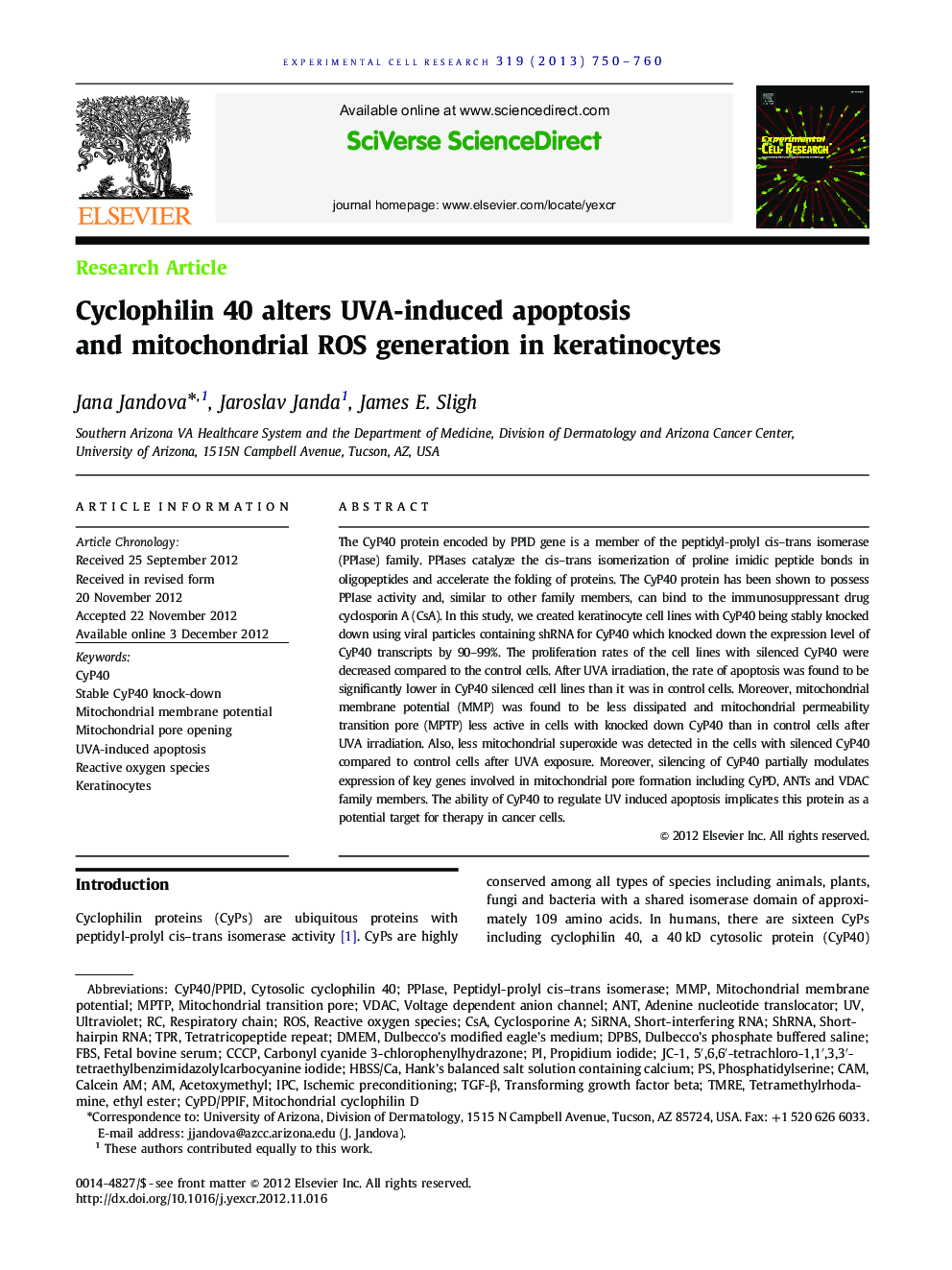| Article ID | Journal | Published Year | Pages | File Type |
|---|---|---|---|---|
| 2130555 | Experimental Cell Research | 2013 | 11 Pages |
The CyP40 protein encoded by PPID gene is a member of the peptidyl-prolyl cis–trans isomerase (PPIase) family. PPIases catalyze the cis–trans isomerization of proline imidic peptide bonds in oligopeptides and accelerate the folding of proteins. The CyP40 protein has been shown to possess PPIase activity and, similar to other family members, can bind to the immunosuppressant drug cyclosporin A (CsA). In this study, we created keratinocyte cell lines with CyP40 being stably knocked down using viral particles containing shRNA for CyP40 which knocked down the expression level of CyP40 transcripts by 90–99%. The proliferation rates of the cell lines with silenced CyP40 were decreased compared to the control cells. After UVA irradiation, the rate of apoptosis was found to be significantly lower in CyP40 silenced cell lines than it was in control cells. Moreover, mitochondrial membrane potential (MMP) was found to be less dissipated and mitochondrial permeability transition pore (MPTP) less active in cells with knocked down CyP40 than in control cells after UVA irradiation. Also, less mitochondrial superoxide was detected in the cells with silenced CyP40 compared to control cells after UVA exposure. Moreover, silencing of CyP40 partially modulates expression of key genes involved in mitochondrial pore formation including CyPD, ANTs and VDAC family members. The ability of CyP40 to regulate UV induced apoptosis implicates this protein as a potential target for therapy in cancer cells.
► We modeled two keratinocyte cell lines with stably knocked down expression of CyP40. ► CyP40 knock down cells were more resistant to UVA-induced apoptosis. ► MMP was less dissipated and MPTP less active in CyP40 silenced cells after UVA exposure. ► Lower ROS levels were detected in Cyp40 silenced cells exposed to UVA. ► Expression of mitochondrial pore genes is altered in CyP40 knock down cells.
